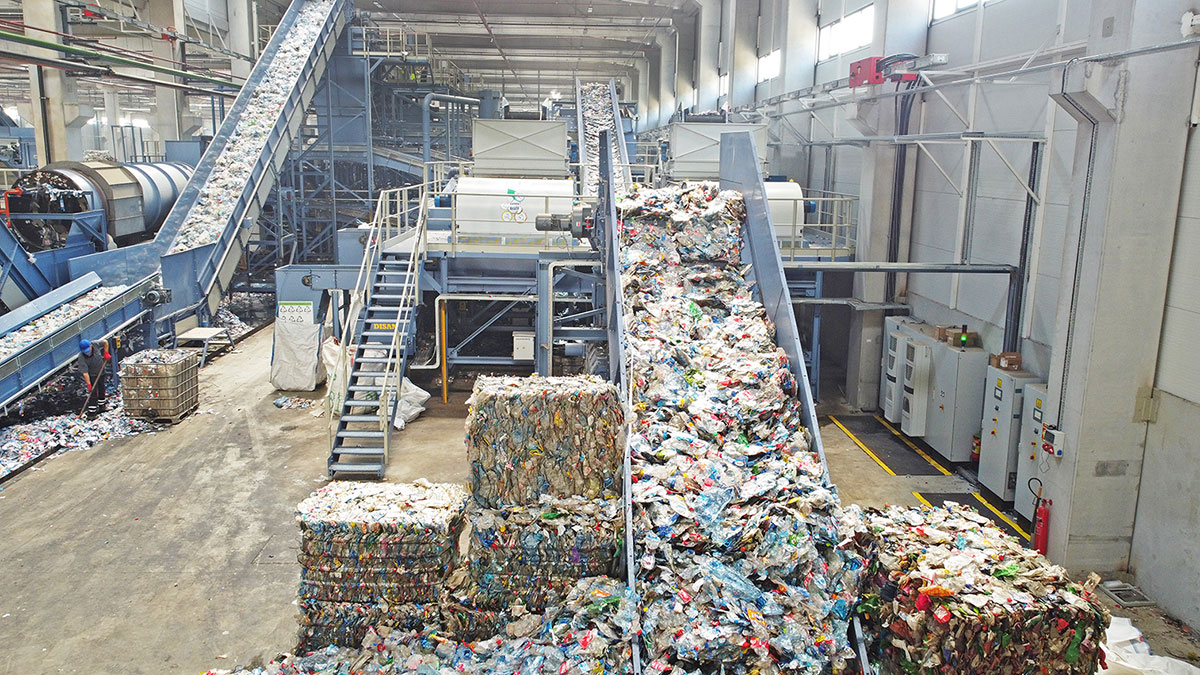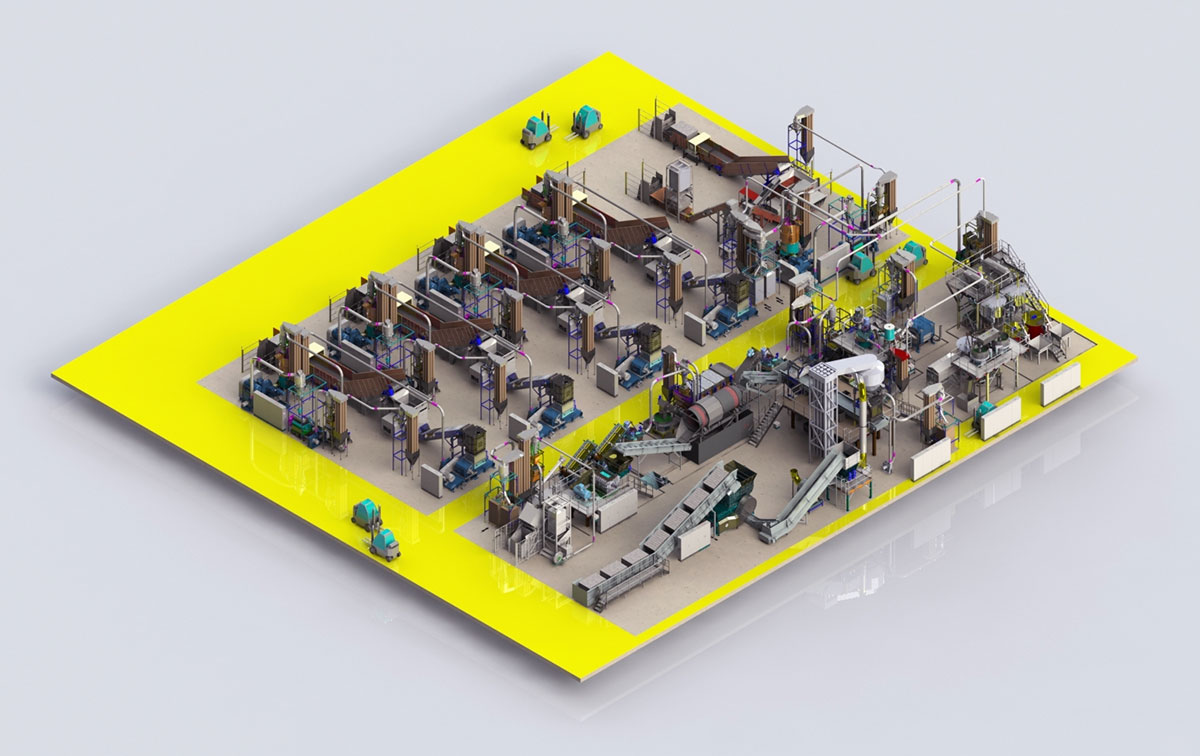Herbold Meckesheim co-develops pilot plants for chemical recycling
The agreement is rightly called historic: Recently, the United Nations Environment Assembly (UNEA) passed a resolution providing a global agreement to curb plastic waste. By the end of 2024, a legally binding convention is to regulate the entire life cycle of plastics. Bitterly necessary, after all, according to UN figures, around 400 million tons of plastic waste are generated worldwide every year, of which only about nine percent is recycled. In addition, the dependence on oil is currently being brought home to us in a frightening way. As a result, a main focus is on chemical recycling of plastics. However, only some 90 projects and just over two dozen plants, most of which are in trial operation, are known to date. Two pilot plants for commercial operation are currently being built in the United States, using, among others, technology from Herbold Meckesheim.
The special machine builder manufactures production equipment and machinery for the mechanical recycling of plastics, may it be pure industrial waste or contaminated plastic waste. And without mechanical processing of the waste, without shredding, washing, separating, drying and compacting, subsequent chemical processing cannot succeed. Herbold Meckesheim supplies the mechanical part for the recycling lines. For the following chemical breakdown into the original building blocks of the plastics – depolymerization – state-of-the-art processes include solvolysis, gasification and pyrolysis, amplified by thermocatalysis and hydrocracking.
“Implementing appropriate solutions is anything but trivial,” emphasizes Achim Ebel, Vice President Sales at Herbold Meckesheim. This starts with logistics, he says, with the decentralized collection, separation and spacious merging of plastic waste. According to the latest figures from the Federal Statistical Office of Germany for 2020, household waste accounted for more than ten percent of a total waste volume of 417 million tons. Per inhabitant, this amounted to 476 kilograms – 194 kilograms of which was typical household and bulky waste without separately collected biowaste or reusable materials. Of the 1.28 million tons of plastics (including composite materials with mainly plastic content) from used retail packaging from private end consumers, around 53 percent had been recycled in 2019.
Figure 1: High production volumes will be required for chemical recycling in the future.
Photo: Herbold Meckesheim
In order to the enormous mass of material to be recycled and the general product responsibility, the waste management industry resembles more and more the chemical industry in terms of the processes with its highly automated plants and high throughputs. The only difference is that the latter is much better off with homogeneous basic materials – unlike the highly heterogeneous feeding material of waste recovery processing. Here, the logistical aspect is joined by the technical one, explains Herbold sales manager Ebel. The challenge, he points out, is to obtain mono-fraction plastics from the inhomogeneous material streams in such purity degrees that downtimes will be avoided in the further course of the process. In addition, metallic and mineral impurities must be removed in order to keep wear on the machine and plant components as low as possible.
Figure 2: Schematic illustration of a mechanical stage in a plant for chemical recycling as an example.
Graphic: Herbold Meckesheim
All this will have to be implemented according to dimensions that recycling plants have hardly been able to achieve up to now. If a common line today has a production volume of about two to three tons per hour, it will be necessary to increase the output tenfold in the future in order to generate sufficient input material for the large-scale plants required in view of the waste volumes. At the same time, according to Achim Ebel, it is important to strike a reasonable balance between cost and benefit. “That’s why individual solutions are needed, such as those currently being developed by Herbold Meckesheim as a mechanical stage in chemical recycling.”
Herbold Meckesheim GmbH
Industriestr. 33
D-74909 Meckesheim
Germany
Tel: +49/6226/932-0 Fax: +49/6226/932-495
herbold@herbold.com
www.herbold.com
About Herbold:
Herbold Meckesheim is leading recycling specialist for the plastics industry. Worldwide, the plants ensure that plastic waste is reduced through recycling. Both the pure waste from the plastics processing industry and used, mixed and contaminated plastics are processed. Machines from Herbold Meckesheim are also used in the fine grinding of plastic granulates and waste or in the waste processing, raw material recovery and material preparation of various industrial processes. Another special feature is the development of the machines in the company’s own pilot plant. Herbold Meckesheim is today managed in the fourth generation by Karlheinz and Werner Herbold. More than 200 employees at the headquarters and the staff of the international agencies accompany machines that are custom-made to fit the requirements from the conception stage through commissioning to the end of their commercial use.






